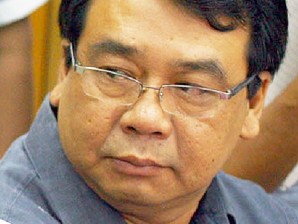13th petition against cyberlaw filed
MANILA, Philippines—Bayan Muna party list on Monday filed with the Supreme Court petition to declare as unconstitutional several provisions of Republic Act 10175 or the Cybercrime Prevention Act of 2012,
At the same time, it asked the high court to stop its implementation pending resolution of case.
The Bayan Muna petition is the 13th petition filed against the Cybercrime Prevention Act.
In their 24-page petition, Bayan Muna through its representative Neri Colmenares is questioning several provisions of the law, saying it violates the freedom of expression, due process, equal protection, right to privacy and correspondence and the right to unreasonable searches and seizures.
Some of the questioned provisions include:
Article continues after this advertisementSec. 4(c)(4), which criminalizes libel, not only on the Internet, but also on “any other similar means which may be devised in the future;”
Article continues after this advertisementSec. 5 (b), which punishes those who attempt, aide or abet the commission of a cyber offense;
Sec. 6, which raises by one degree higher the penalties provided for by the Revised Penal Code for all crimes committed through and with the use of information and communications;
Sec. 7, which provides that, apart from prosecution under the law, any person charged for the alleged offense covered will not be spared from violations of the Revised Penal Code and other special laws;
Sec. 8, which lists penalties corresponding to Section 5 (b);
Sec. 11 which lists duties of law enforcement authorities, including the submissions of “timely and regular reports including pre-operation, post-operation and investigation results and such other documents as may be required by the DoJ;
Sec. 12, which authorizes the real-time collection of traffic data;
Sec. 13, which authorizes law enforcement authorities to collect or record, by technical or electronic means, traffic data in real-time;
Sec. 15, which authorizes law enforcement authorities to search, seize and examine computer data;
Sec. 17, which authorizes service providers and law enforcement agencies to “completely destroy the computer data subject of a preservation and examination” order;
Sec. 19, which authorizes the DOJ to block access to computer data when such data “is prima facie found to be in violation of the provisions of this Act;” and
Sec. 20, which states that those who fail to comply with provisions of Chapter IV (Enforcement and Implementation), specifically orders from law enforcement agencies, shall face imprisonment of prision correctional (6 months and 1 day to 6 years) in its maximum period or a fine of P100,000 or both, for each noncompliance;
Sec. 21, which states the jurisdiction of Regional Trial Courts (RTC) and designated cybercrime courts over violations of any of the provisions of the law; and
Sec. 22, which pertains to international cooperation from all relevant international instruments, international arrangements, and domestic laws in the implementation of RA 10175.
“Indeed, the Internet is not evil per se, but the statute in question views cyberspace as inherently evil and treats those who use it in violation of a rule with unjust discrimination by providing a penalty higher than an act committed without the use of an Internet,” the petition stated.
“What standards distinguish Internet users from other ordinary criminals, the law does not explain,” the petition further stated.
On Tuesday, the Department of Justice (DoJ) will hold forum to clarify to the public provisions of RA 10175. It will be attended by netizens, bloggers and other oppositors of the law.
